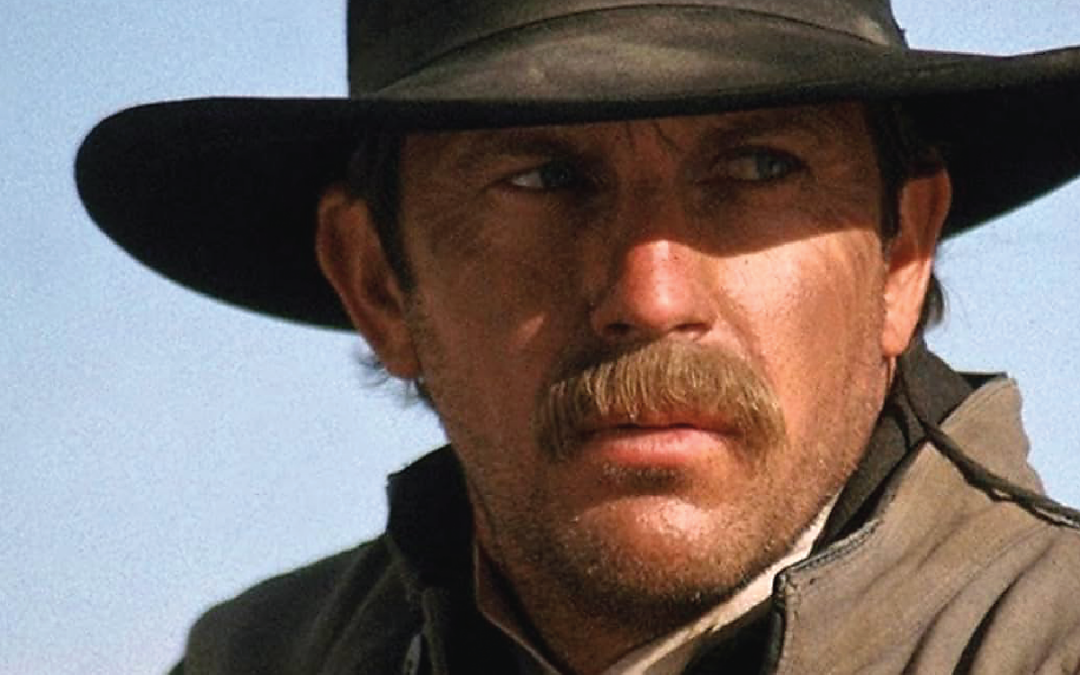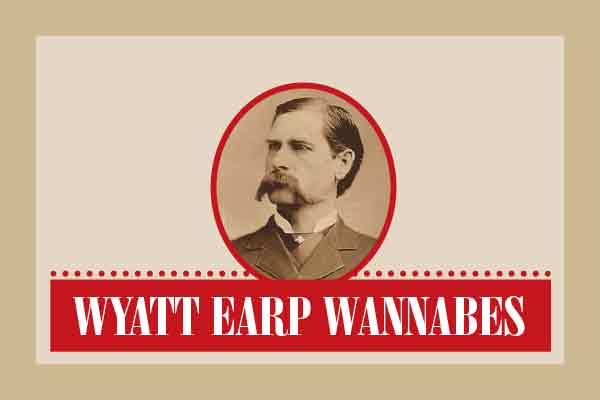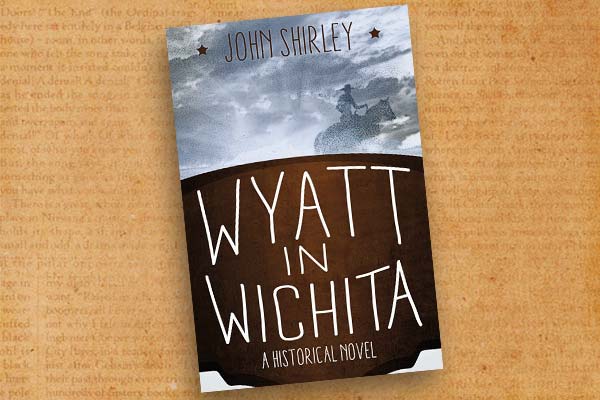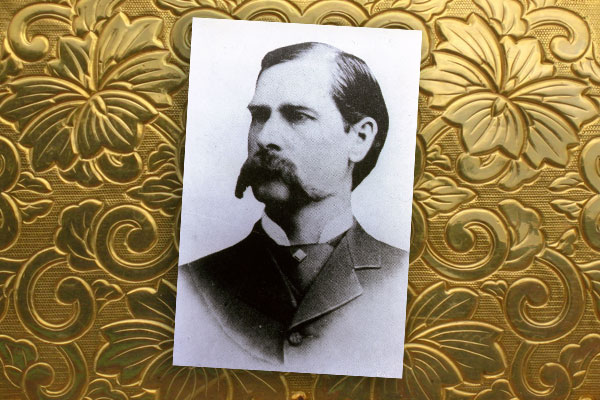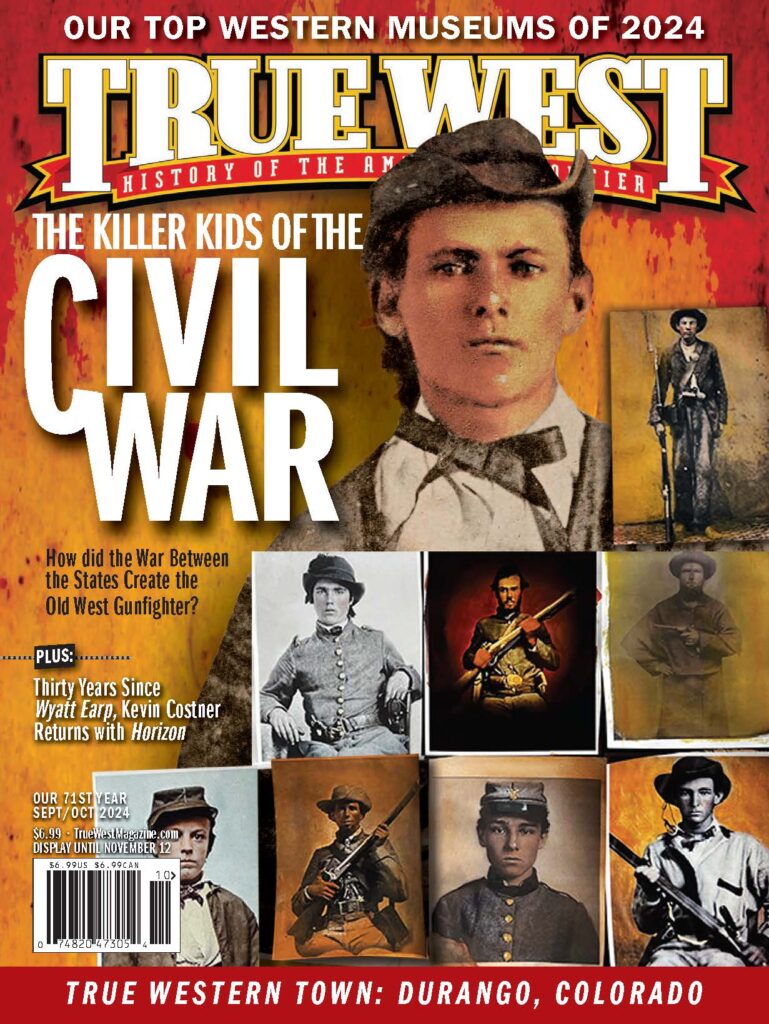Screenwriter Dan Gordon reveals the real story behind the making of the blockbuster biopic.
When it comes to the events in Tombstone on October 26, 1881, if any question is more open to debate than whether the Earps or the Clantons were the villains, it is the question of whether Wyatt Earp or Tombstone is the definitive telling. Warring factions are still debating who actually directed Tombstone, but few are aware of the convoluted path that led to the film Wyatt Earp and what was lost along the way.
But Dan Gordon, a screenwriter with 35 credits—including three features in the last year—knows. While the film is often referred to as “written and directed by Lawrence Kasdan,” a glance at the titles shows it was actually written by Dan Gordon and Kasdan, with Gordon getting top billing. Before we had our interview, his only request was that I first read the movie tie-in version, which he wrote. As he said in his email, “It is a novelization of my original screenplay. Not the one Kasdan bastardized.”


Gordon’s love of the West started in the Northwest, where he spent much of his youth. “Dad was foreman of [his brother’s] ranch. My uncle was one of the biggest cattle ranchers in Western Canada: he supplied all the bucking stock to the Calgary Stampede. My brother and I got to see the rodeos from the chutes: it was every boy’s dream. That certainly instilled in me a love for the [Western] genre.” He spent much of his teen years on a kibbutz in Israel, and, he says,
“My dad finally got tired of the Canadian winters and we moved down to California.
“I had wanted to be a writer for as long as I can remember.” He started working seriously at it in Israel, studied film at UCLA and got an early break as a screenwriter. “The vice president of Universal said, ‘How old are you?’ I said, ‘I’m 20.’ He said, ‘Call your mother. You’re too young to sign a contract.’”
Gordon’s interest in Earp began in his childhood. “When I was a kid in Bell Gardens, California, there was a guy who was around 90 years old who had actually been a deputy in Tombstone under Virgil Earp. He knew Wyatt Earp, and he told us ‘tall tales.’ That’s when the Hugh O’Brian series [The Life and Legend of Wyatt Earp] was on TV, and here you’re talking to the real thing: it certainly made an impression on me.” Before he started writing his own script about Earp, he “spent close to a year researching [him]. I was in the basement of the Cochise County Hall of Records, in the Pima County Hall of Records.”

Gordon became convinced that while earlier films about the O.K. Corral had been entertaining, “the real story was not lawmen versus grubby rustlers. I thought, what I really have here is a Western Godfather, the story of two families: one is a crime family, and the other is a law-enforcement family. And behind it was a very sophisticated land grab worth about $20 million in 1880 dollars.” Never referenced in previous O.K. Corral films was the fact that Tombstone was a community of squatters, the land belonging to the U.S. government. The Tombstone Townsite Company was formed to sell worthless land deeds and take control of property. The villains of Gordon’s screenplay were two criminal associates, family patriarch Newman Clanton, heretofore dismissed as Old Man Clanton, and the remarkable Mike Gray, a former Texas Ranger-turned-TTC principal owner.
In Tombstone, it’s a throwaway line when Sheriff Behan introduces himself as, “Captain of the Fire Brigade and Chairman of the Nonpartisan Anti-
Chinese League,” but in fact, Gordon notes, “Mike Gray was brilliant enough to use racism to pull off his land grab,” and to promote the burning of the Chinese quarter, so TTC could claim the lots. “He knew they would say, ‘Who cares? They’re just Chinese.’ It was evil and smart.” Gordon’s script also included the real-life China Mary. “One third of Tombstone was Chinese, and China Mary held the contract on every Chinese who was in Tombstone. She was an incredibly powerful woman.”
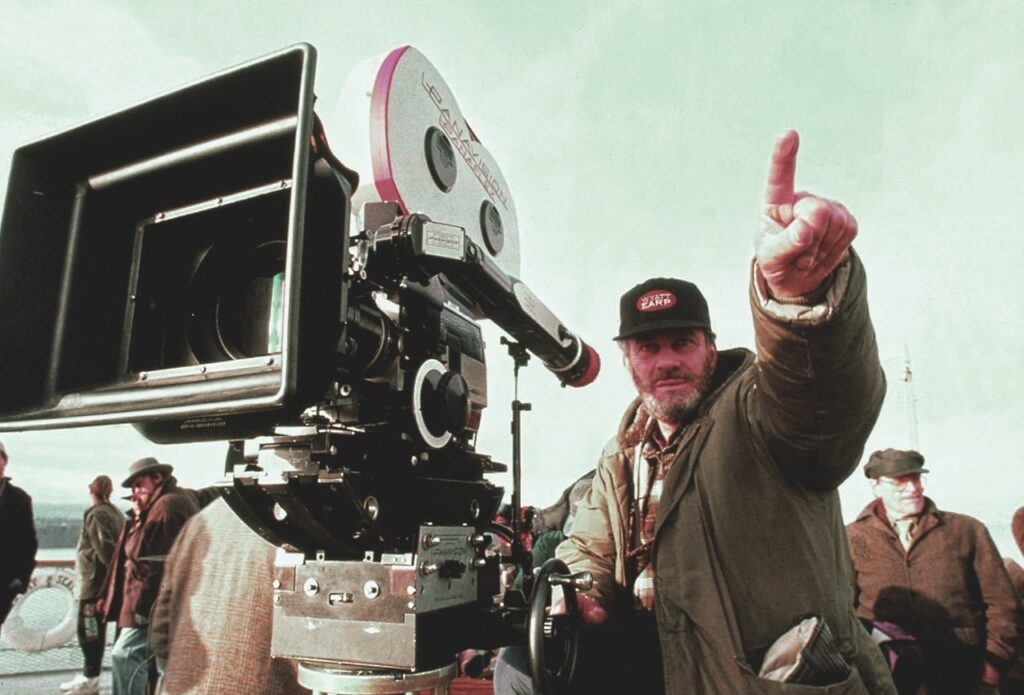
Gordon knew who he wanted to bring the script to. “Kevin [Costner] was in the final process of editing Dances with Wolves. I pitched it, and Kevin on the spot said, ‘Let’s do it.’ The only note I ever got from Kevin was, ‘Give me more.’ He just was a real joy to work with. We developed it for almost three years, because during that period he did Bodyguard and Robin Hood and the Clint Eastwood movie, A Perfect World.
“It was originally developed as a six-hour miniseries. The first idea was to do what Kevin is doing now with Horizon, a series of three movies: we were going to do the summer of Wyatt Earp. Warners didn’t like the idea, and so I wrote it as a two-hour. We had talked about Marty Scorsese directing it in black and white. The original idea for Mike Gray was Clint Eastwood—Kevin could have gotten Clint easily because of Perfect World. For Old Man Clanton, we were talking about Jack Nicholson. And Kevin could’ve gotten them, because he was the biggest star in the world. And then Kevin did something which I didn’t expect: he gave the project to Larry Kasdan. If Kevin has a flaw, it’s that sometimes he’s too good a friend to his friends. Kasdan started his career when Kevin played the corpse in the coffin in The Big Chill. That was his first role. Then he did Silverado with Kasdan. I think it was more of a favor to Kasdan than thinking Kasdan was the right director, which I certainly don’t think he was.”
He liked Kasdan’s rewrite even less. “It’s the only Western I’ve ever seen where someone cut out the villains! You had two great parts, Mike Gray and Newman Clanton. He took what should have been a great Western and turned it into a pretty boring Western that had some moments that were really wonderful.”

What were the wonderful parts? “Kevin’s performance was really spot on. I thought Dennis Quaid as Doc Holliday—I know everybody is enamored with Val Kilmer’s interpretation because it was so flamboyant, but Dennis went on a starvation diet to become a tubercular Doc Holliday, and he gave the most uncompromising, truly heroic performance. Michael Madsen, who played Virgil—I thought he was good. I always like Marty Kove. I love anything Gene Hackman does, but they gave him some really stupid lines to say. I thought Isabella Rossellini, who I adore as an actress, was horribly miscast. I mean, playing Big Nose Kate, and she has a rather small nose. It was so absurd that Kasden had to stick in a line saying, ‘They call me Big Nose Kate, but I don’t have a big nose. You know how people give you a name,’ blah, blah, blah. Well, why didn’t you just hire Angelica Huston?”
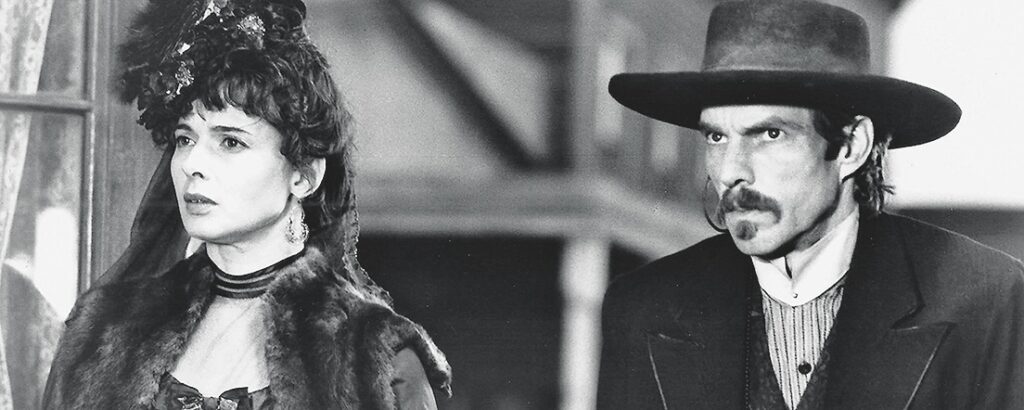

Of course, maybe the problem was fate; maybe opening up that Tombstone can of worms was like opening King Tut’s tomb. “Glenn Boyer was the premier Earp researcher. He’s the only one who actually knew Josie Earp, and he knew Virgil’s wife.* Glenn had told me there was an Earp curse. He said, ‘Don’t do this movie. It’ll ruin your life.’” Kind of like Kevin Jarre on Tombstone. “Kevin Jarre was a very good writer,” Gordon confirms. “He wrote Glory.” He wouldn’t sell his Tombstone script to Disney unless they hired him to direct. “And he was naive enough, he was sort of boasting that he made Disney eat it. I’ve been in this business for 57 years. You don’t make Disney eat it: Disney eats you. They have 1,000,001 ways to make sure you’ll go over budget. All they have to do is say to the first A.D. or production manager, slow this guy down. And lo and behold, Kevin Jarre was replaced because he was over budget. George Cosmatos came in to direct, and I knew Crazy George. He was overweight, he smoked a lot, he had other bad habits. I sort of knew Sam Elliot; Sam said to me, ‘Well George just kept passing out. But he kept getting back up.’ I heard it was really Kurt Russell who directed the picture. And I believe that. I think Kurt Russell is a consummate actor and a consummate filmmaker. And it was a very entertaining movie.”
Currently, Dan Gordon is producing October 7th, a documentary series about the Hamas attack on Israel for Trinity Broadcasting. And he’s looking forward to Horizon. “I can’t wait to see the movie. I think the trailers just look wonderful. And Kevin, when you think of how long he has been doing it, at the level at which he plays the game, it’s extraordinary. There’s a handful of people in the world that you can say that about, in their professions. He’s one of ’em.”
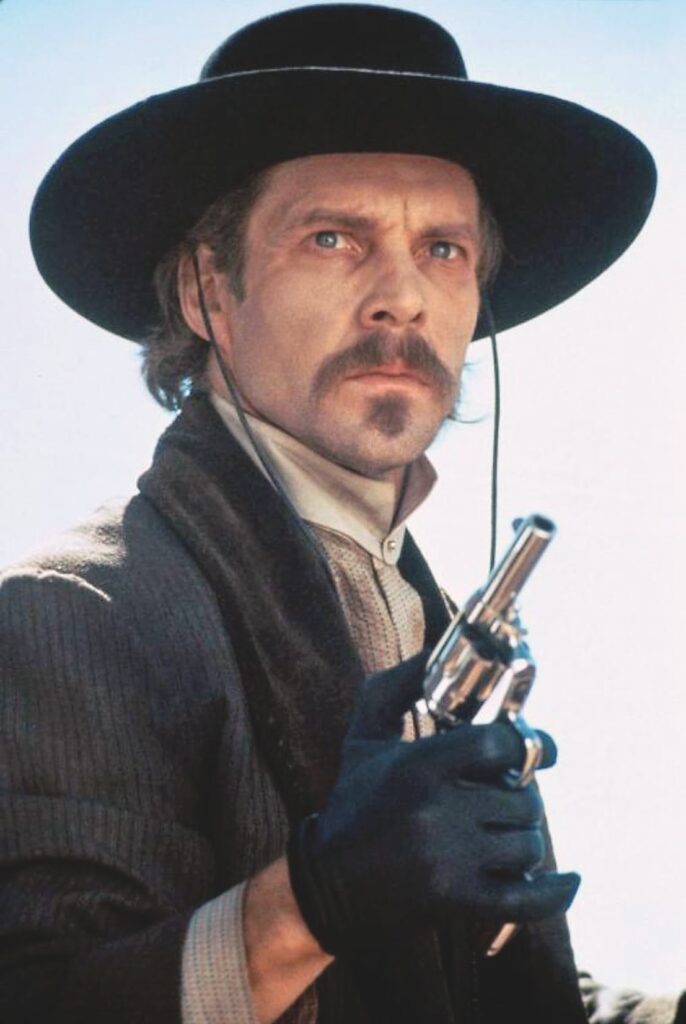
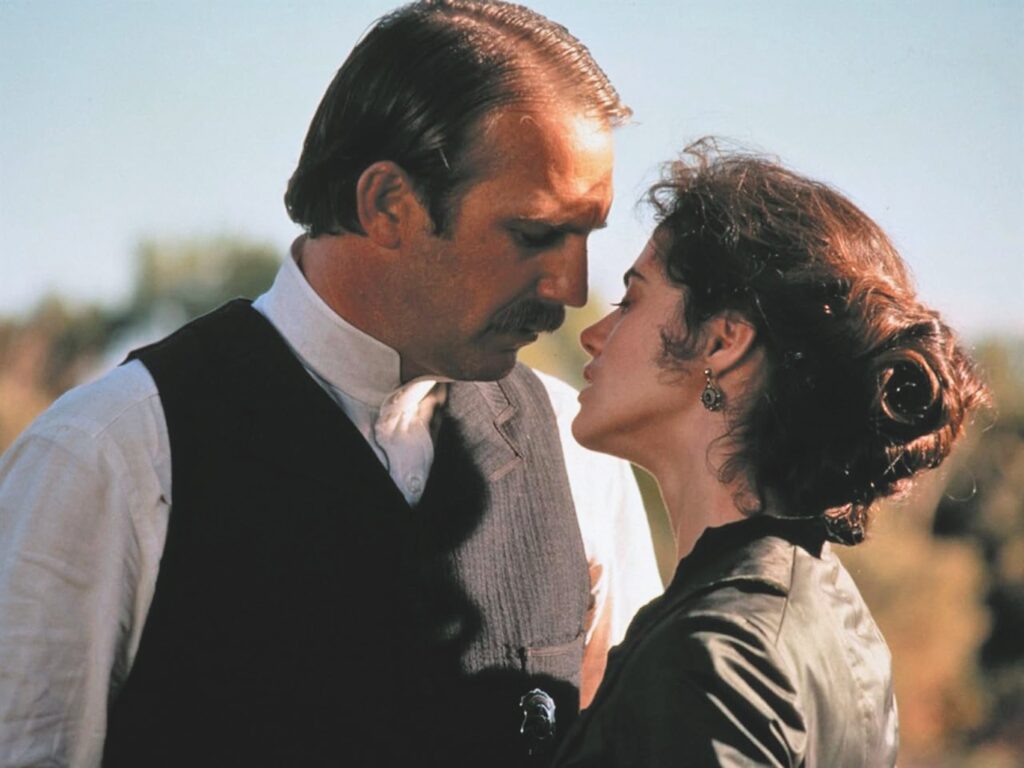
Blu-Ray REVIEW
LONE STAR
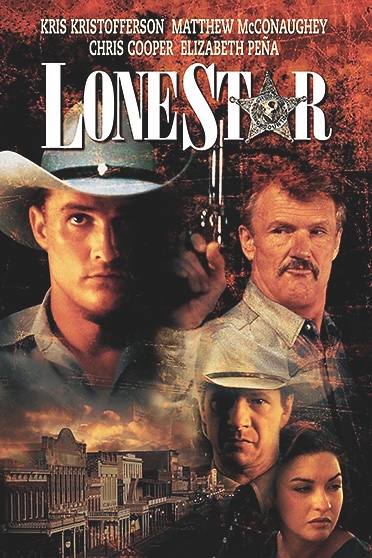
(Criterion Blu-Ray $31.96; 4K + Blu-Ray $39.96) On the eve of the dedication of a monument honoring a late Rio, Texas, sheriff, an unearthed skeleton suggests the honoree may have been a murderer. Investigating with bitter gusto is the current sheriff (Chris Cooper) who, being the son of the honoree, presumes the worst. An indie film written, directed and edited by John Sayles, with the most elegant flashback transitions since Citizen Kane, it flows between 1957 and 1996, examining fathers and sons, mothers and daughters, and the evolving status of the three generations of Texans, Tejanos and Black Seminoles that the neo-Western mystery envelops. There are no stock characters, and the cast is ideal, with memorable performances by unfamiliar faces, with Kris Kristofferson, Frances McDormand and the youngest Matthew McConaughey you’ve ever seen.
*Editor’s Note: Since 1994, many of Glenn Boyer’s claims have been openly questioned.
Henry C. Parke, Western Film and TV Editor for True West, is a screenwriter, and blogs for the INSP Channel, and at HenrysWesternRoundup.blogspot.com. A book based on his True West columns, The Greatest Westerns Ever Made, was recently published by TwoDot.

